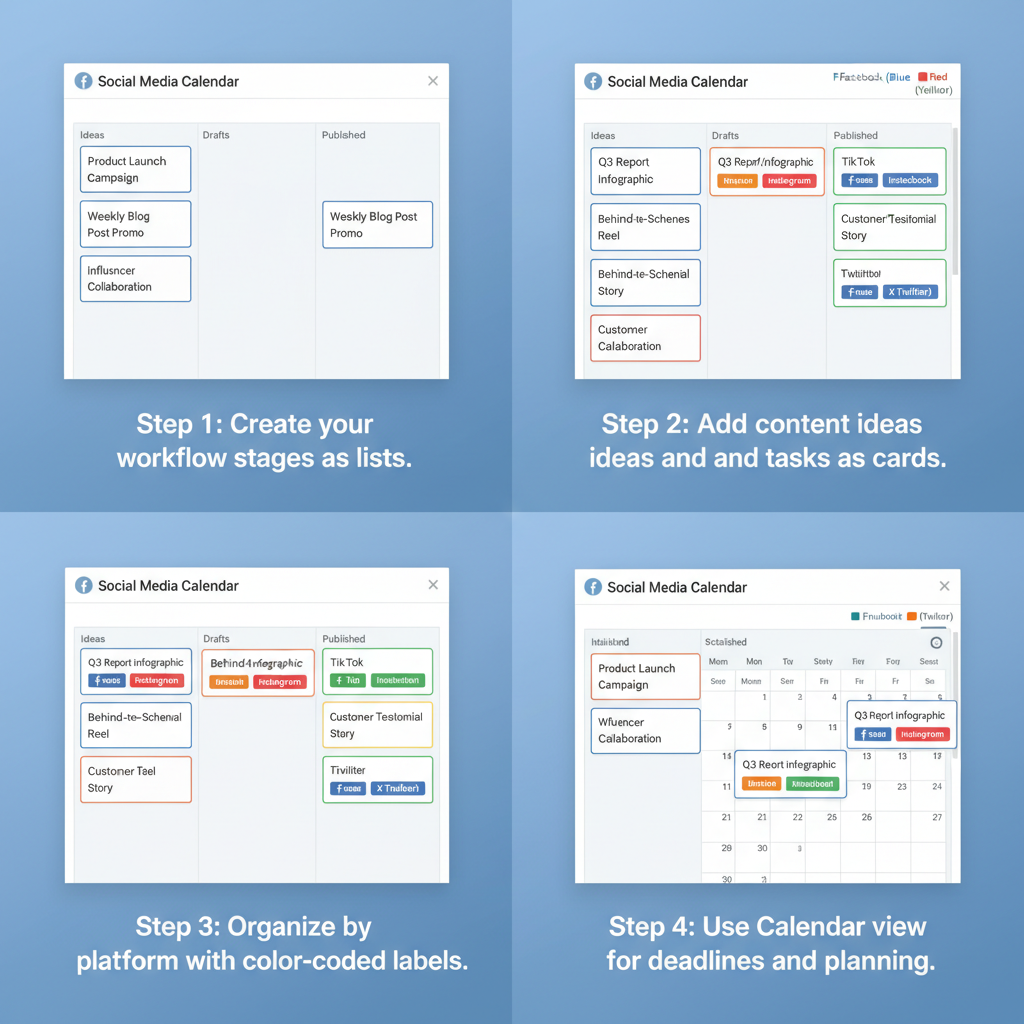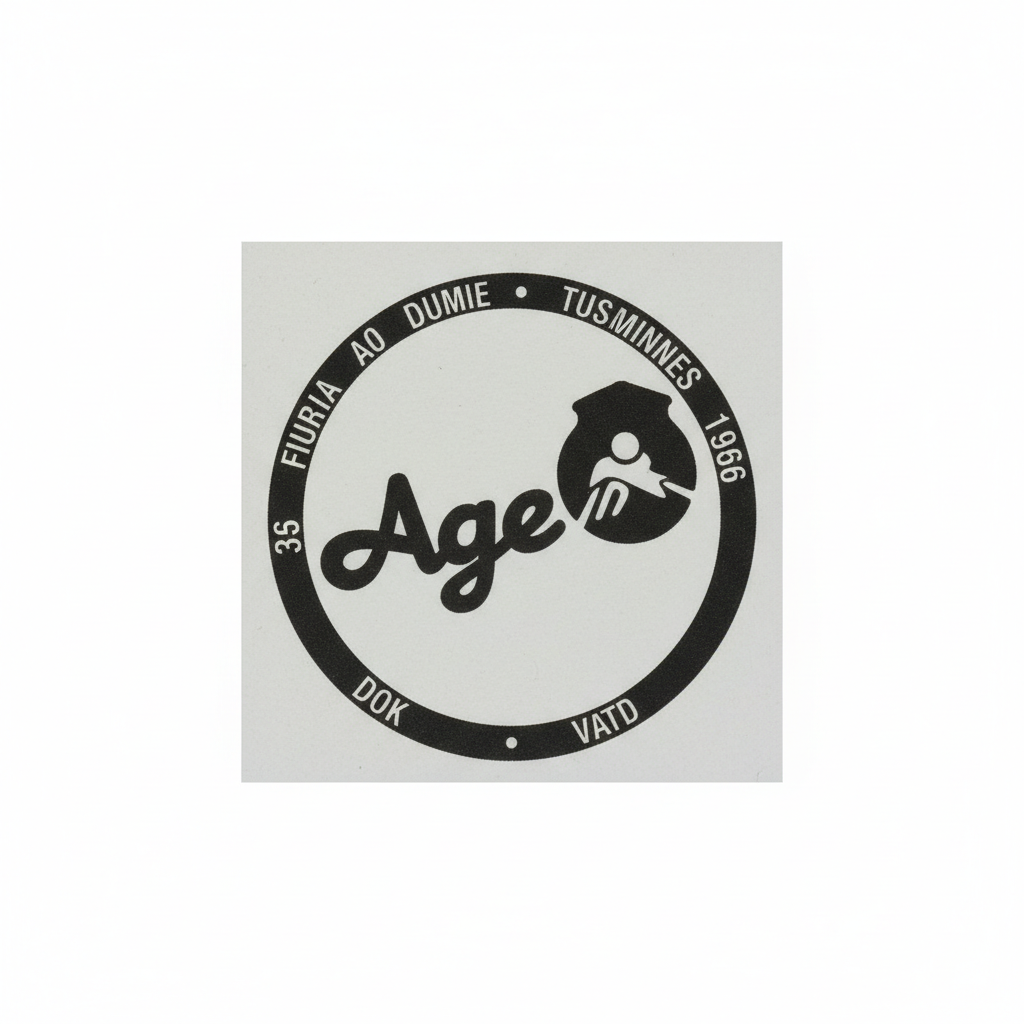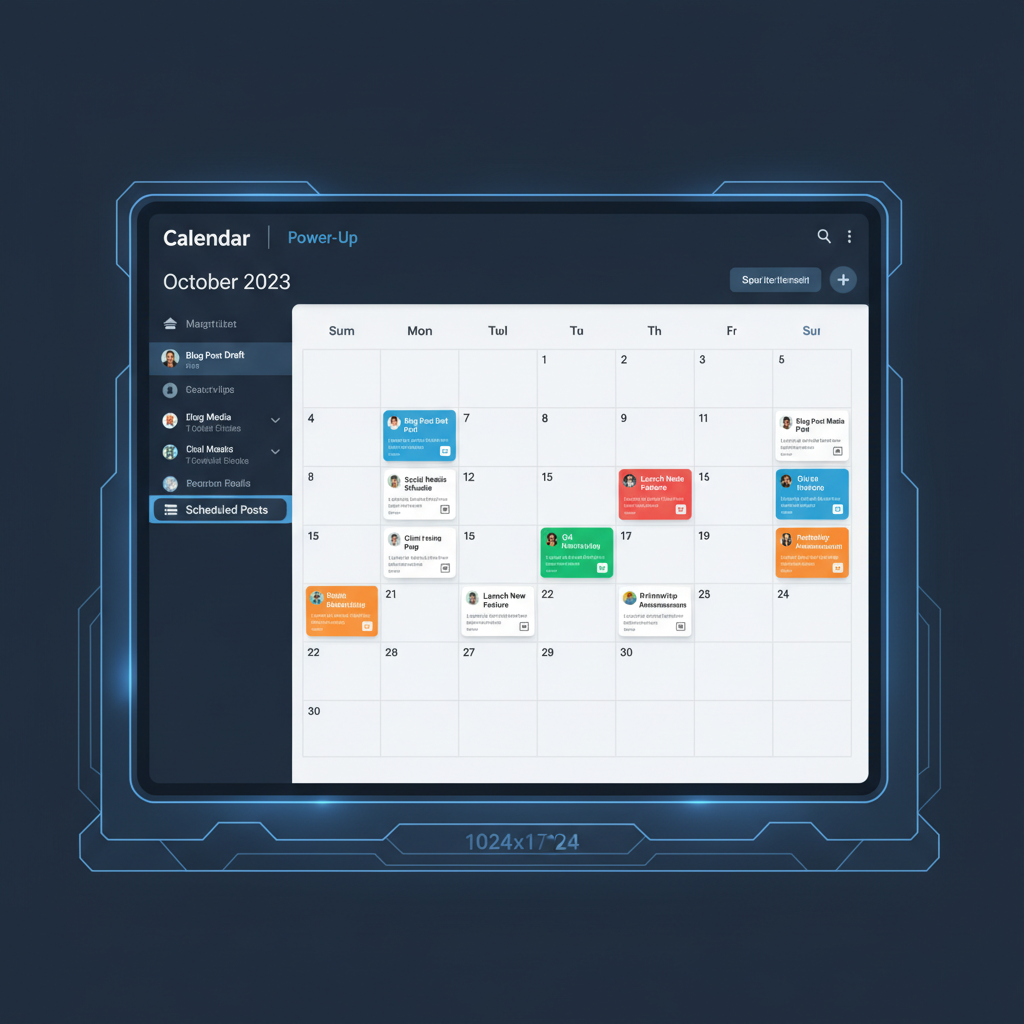Trello Social Media Calendar Setup for Content Planning
Learn how to set up a Trello social media calendar with lists, labels, and integrations to streamline content planning and boost posting consistency.

Introduction to Trello as a Content Planning Tool for Social Media
Using Trello as a social media calendar is a proven way to bring order and consistency to your content strategy. Trello’s intuitive boards, lists, and cards transform scattered ideas into organized workflows, while its collaboration and automation features help teams coordinate campaigns more effectively across multiple platforms.
If you’re a business owner, marketer, or freelancer, building a Trello social media calendar can centralize campaigns across Instagram, Facebook, LinkedIn, TikTok, and other channels — ensuring each post is scheduled, tracked, and optimized for engagement.

In this guide, you’ll learn how to set up a Trello social media board from scratch, customize it for your unique needs, and apply professional tips to achieve more consistent and impactful publishing.
---
Benefits of Using a Trello Social Media Calendar
Employing a Trello social media calendar provides tangible advantages for your workflow and results:
- Centralized Planning: Keep all scheduled posts in one place instead of juggling notes or spreadsheets.
- Visual Organization: Instantly assess the state of your posts by platform, campaign, or stage of production.
- Real-time Collaboration: Share boards with teammates, assign tasks, and integrate feedback channels.
- Consistency in Posting: Maintain a steady publishing rhythm with a visible plan.
- Cross-platform Management: Effortlessly monitor campaigns across different social media channels.
---
Setting Up Your Trello Board: Lists, Cards, and Labels
A clear, repeatable Trello structure simplifies content management.
Step 1: Create Lists
Lists represent stages in your workflow. Examples include:
- Ideas / Backlog
- Content Drafting
- Under Review
- Ready to Publish
- Published
Step 2: Add Cards
Each card is a discrete post or piece of content with:
- A descriptive title
- Platform indicators or hashtags
- Notes for captions or media inspiration
Step 3: Assign Labels
Color-coded labels categorize posts:
- By platform (Instagram = Pink, LinkedIn = Blue)
- By post type (Video, Image, Carousel, Blog)
- By campaign or seasonal theme

---
Choosing a Calendar Power-Up or Integration for Scheduling
While Trello’s board view works well, a calendar view makes planning posts more intuitive.
Trello Calendar Power-Up
The built-in Calendar Power-Up displays cards with due dates in a calendar format, enabling monthly or weekly scheduling.
Automation and Integrations
Maximize efficiency with integrations:
- Zapier – Connect Trello with Buffer, Hootsuite, or Later for auto-scheduling.
- Butler Automation – Create rules that move cards based on dates, checklist completions, or labels.
- Planyway / Cronofy – Sync with external calendars for advanced timeline views.
---
Defining Content Categories and Color-Coding Them
Balanced content keeps followers engaged. Assign categories and label colors as follows:
| Category | Color Label | Example Post |
|---|---|---|
| Promotional | Red | New Product Launch |
| Educational | Blue | How-To Tips |
| Inspirational | Green | Customer Success Stories |
| Engagement | Yellow | Polls, Questions |
This visual system ensures your calendar maintains a diverse and appealing content mix.
---
Mapping Out the Content Workflow: Idea to Publish
A defined workflow streamlines production and prevents missed deadlines.
- Idea Generation – Collect raw concepts in the Ideas list.
- Draft Creation – Write copy, source images, and edit videos.
- Review & Feedback – Get input from teammates or clients.
- Approval – Secure sign-off before scheduling.
- Publishing – Post manually or via automation integrations.
- Post-Publish Tracking – Record analytics for ongoing optimization.
---
Adding Due Dates, Checklists, and Attachments
stay on schedule by using Trello’s productivity features:
- Due Dates: Assign a specific posting date for calendar visibility.
- Checklists: Break down tasks (write copy, edit media, add hashtags, approve final draft).
- Attachments: Store images, videos, or links to cloud folders for seamless publishing access.
Example checklist:
Checklist: Instagram Reel Publication
[ ] Write script
[ ] Record video
[ ] Edit footage
[ ] Write caption
[ ] Add hashtags
[ ] Schedule in Buffer---
Collaborating with Team Members in Trello
Trello’s collaboration tools keep teams aligned.
- Assign members to specific cards for ownership.
- Comment threads facilitate structured discussions.
- Use @mentions to notify relevant parties.
- Board sharing allows visibility without editing rights for clients.

Fine-tune access permissions to maintain security while fostering openness.
---
Tips for Optimizing Your Trello Calendar for Consistency and Engagement
Enhance your calendar’s effectiveness with these professional tips:
- Template recurring posts for predictable content themes.
- Pin editorial guidelines for quick reference.
- Add card covers for visual identification.
- Automate repetitive actions with Butler rules.
---
Regularly Reviewing and Adjusting Your Trello Social Media Calendar for Performance
Social media is dynamic — adapt regularly to audience behavior.
- Review Engagement Stats – Analyze likes, shares, and comments.
- Spot Trends – Identify best-performing content types.
- Optimize Timing – Align postings with peak activity hours.
- Experiment with formats – Replace low-performing styles with new ideas.
Performance tracking example:
| Post Date | Platform | Category | Engagement Rate | Next Steps |
|---|---|---|---|---|
| 2024-05-10 | Educational | 5.2% | Repurpose into blog post | |
| 2024-05-18 | Promotional | 3.1% | Test different image style | |
| 2024-05-22 | Inspirational | 7.8% | Increase frequency |
---
Conclusion
A Trello social media calendar acts as the backbone of a deliberate content strategy. Through structured lists, color-coded categories, and automated workflows, it enables faster production and more consistent engagement. Regular reviews and adjustments keep your approach competitive.
Whether you operate solo or as part of a team, implementing these Trello best practices will help you plan confidently, post strategically, and achieve measurable results. Start organizing your content today and turn social media chaos into a streamlined, high-performance system.




